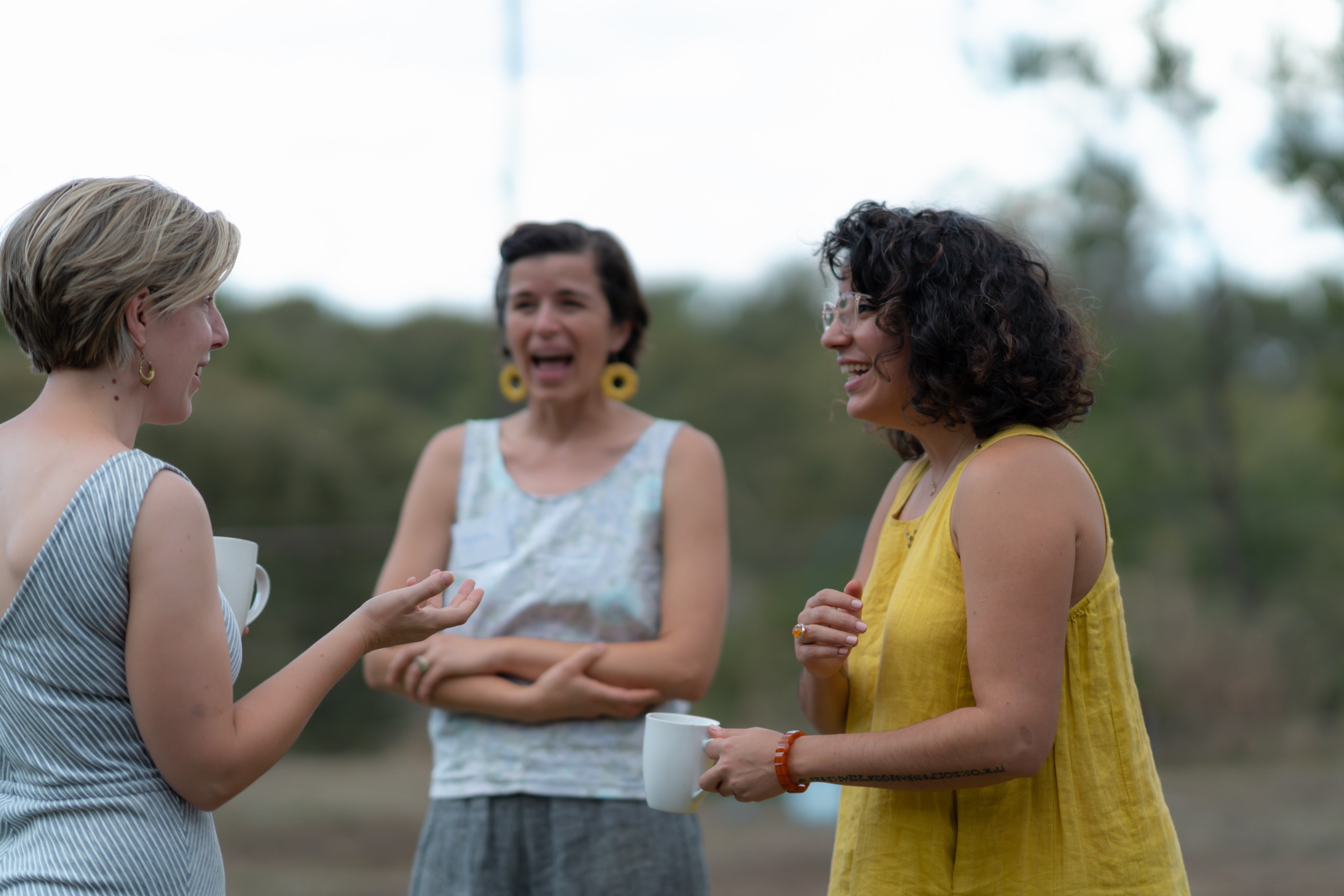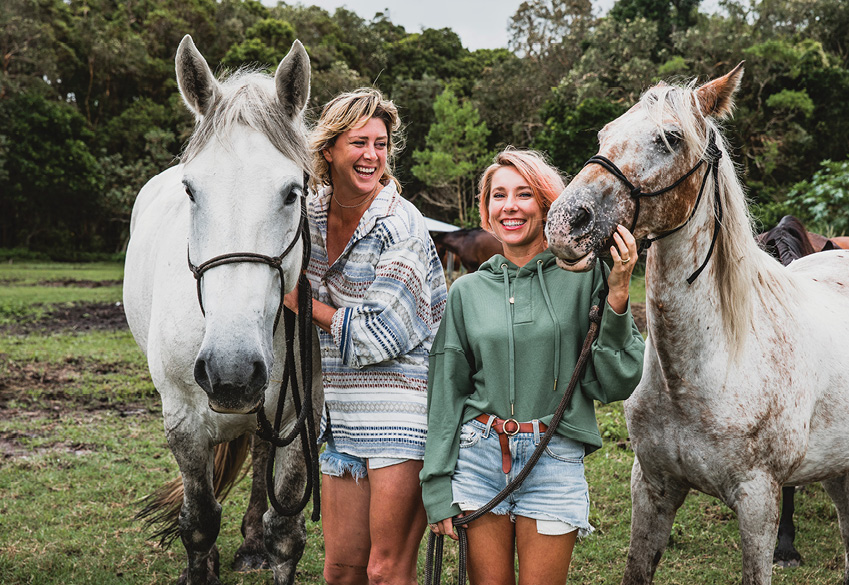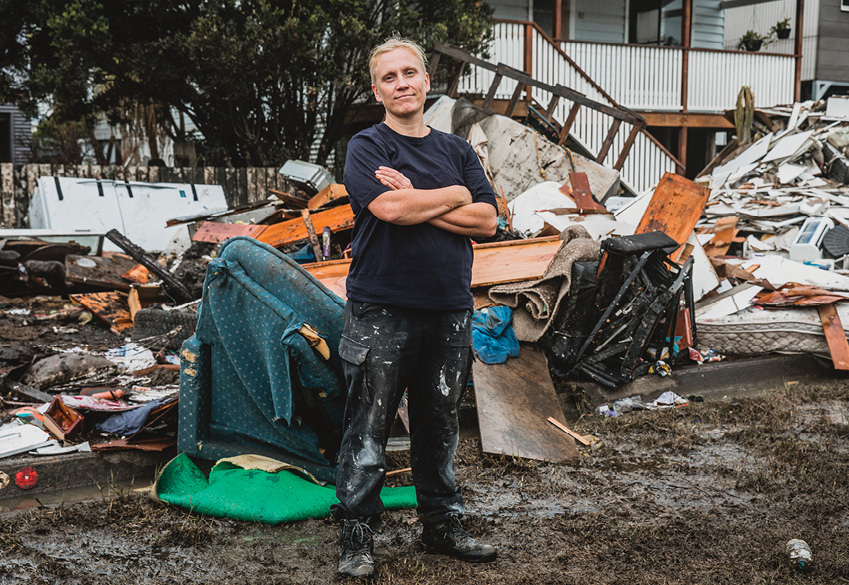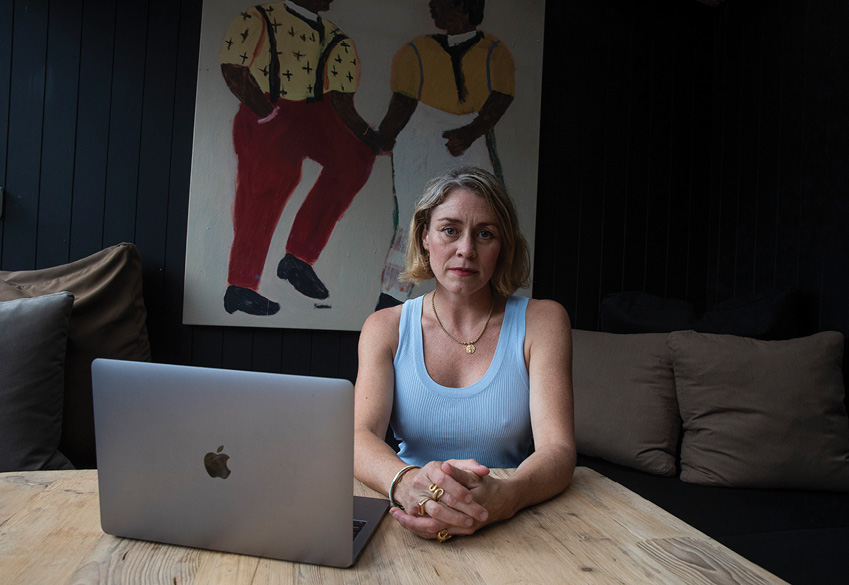My latest feature, and my first for Patagonia Australia.
Australian leadership – let’s call it what it is: traditional, male and white – isn’t working for many of us, least of all the environment. Bring more women and diverse voices to the table before it’s too late, urges Women’s Environmental Leadership Australia.

Sherie Bruce has trouble calling herself a leader.
The Arrernte and Yolgnu scientist and mother from the NT has stood against Adani’s Carmichael Mine plans on the part of First Nations communities. She’s gently agitated for a Reconciliation Action Plan at the Queensland Conservation Council, where she is deputy chair. She’s influencing a group of people in an organisation that can make fundamental change across a sector that can improve the lives of all Australians. She might not be ‘in charge’, but she’s a bona fide environmental figurehead, creating genuine and lasting positive change.
“Well,” Sherie eventually concedes, laughing, “that’s leading then, isn’t it?”
By her own admission, she has a classic case of impostor syndrome, doubting her abilities and achievements. She’s not alone. In the environmental space, women in Australia rarely dominate headlines or public conversations. They achieve results without fanfare and despite the barriers posed by the traditional structures in which they work. Yet, whether or not they acknowledge their wins, their leadership is largely unseen, unsupported and unfunded. As climate goals are ramped up, something has to change – and that something looks a lot like equality.
“We need to unleash women’s capacity,” says Victoria McKenzie-McHarg, the strategic director of Women’s Environmental Leadership Australia. WELA is a not-for-profit working with women like Sherie to redefine leadership with the goal of tackling environmental and climate disaster. It was in her former roles at Environment Victoria and the Australian Conservation Foundation – and as current chair of Climate Action Network Australia – that Victoria saw a pattern emerge: masculine models of leadership that fail to recognise the challenge, take action and break away from the norms. “It dawned on me,” she tells me from her home (and WELA HQ) in Forrest, in rural Victoria, “that what we were facing was not an environmental crisis, it was actually a leadership crisis.”
“It dawned on me that what we were facing was not an environmental crisis, it was actually a leadership crisis.”
Give women and gender diverse people the space to lead their way, because – and here WELA’s message is disarmingly frank – we will not get out of the crises we’re in by relying on the same outdated leadership that got us into them.
We know that more female decision-makers leads to better environmental results. The evidence shows that where women are leading, there is more collaboration, greater use of networks and more responses to community. A 2019 study found that more women in parliament meant more stringent climate change policies. At a local level, natural resource management by women is associated with better resource governance and conservation outcomes, according to the UN. In fact, if all women smallholders received equal access to resources, up to 150 million people would no longer go hungry. In the corporate sector, more women on boards increases the disclosure of carbon emissions information. And those most affected by climate change today? Women, girls and the marginalised.
We know all this to be true, and yet we are still not getting women and diverse voices into the room. Take COP26 in Glasgow, where, on the opening day of the planet’s most urgent climate talks yet – and against a backdrop of the UN’s Sustainable Development Goals, which explicitly champion gender equality – just 10 of the 140 assembled leaders were women. The UK’s top representatives at the talks initially included a sum total of zero women. Globally, just 21 per cent of all government ministers are women.

So, yes, the word ‘leader’ still conjures power agendas and grey suits, intimidation and alienation. That is, after all, the reason for WELA’s existence. Leadership often looks like Scott Morrison… and Scott Morrison being ousted by a prime minister who actually believes in climate change. Victoria’s relief over Australia’s change of government is palpable. It also looks like Tanya Plibersek as Minister for the Environment and the surge of teal independents – whose campaigns, by the way, were largely driven by women aged 60-plus. But, says Victoria, leadership is also quietly thriving in your school, neighbourhood and local surf spot.
“I have seen the most extraordinary acts of leadership from the newest volunteer that highlights the inadequacy of our most highly paid corporate CEOs who are failing to lead on a daily basis,” Victoria says. “We have thought for so long that governments lead. Governments never lead, the community leads. And, if we wait for the government to lead, we’re really in trouble because there are not many women in government.”
I’m reminded of the summer’s disastrous Queensland and northern NSW floods, when obliterated infrastructure and a governmental leadership void was circumvented by unbroken communities. Those who responded were young and old and from all walks of life. But behind every one of the sensational rescue or clean-up photographs was a vast and hidden coordination effort. As one of its accidental leaders, Jacqui Lewis, told me, she was “in awe of the other mostly women” she was surrounded by as she, amongst many other things, secured satellite communications to reconnect isolated communities.
From her back door, Victoria steps into the Great Otway National Park, a swath of temperate rainforest that is one of the most carbon dense forests in the world. It’s a wilderness she walks in every day, but come summer, it’s also a major bushfire risk area. Her experience of climate change isn’t born from research reports, she need only look out of her window.
“This is a major existential crisis, hero-based strongman leadership is not working for our environment anywhere.”
WELA was founded in 2016 by a group of matriarchs in the environmental space. They are women who helped found the Greens, protested the Franklin River Dam, started the Wilderness Society and Bush Heritage, but, says Victoria, an alum of WELA’s inaugural program, “you don’t know their names, because they’re women.”
In 2019 she had a call from WELA looking for insights as to how the program might evolve, and even survive. The penny dropped. She grabbed a pen and butcher’s paper and, sitting on her living room floor, began mapping out WELA’s scaled-up future. “This is a major existential crisis, hero-based strongman leadership is not working for our environment anywhere,” she told the team. “We need women making decisions at every level, we need to make that happen, how about it?” To their unending credit, they backed her.

So far, WELA has trained over 130 women and gender diverse people, their ages ranging from about 25 to 75. It’s open to anyone who is actively working for the environment, paid or unpaid, and informally or formally taking a leadership role – whether they call it that or not. Through nine months of coaching, mentoring and two week-long retreats, the program comes at leadership from the top down, bottom up and sideways, and is geared to welcome difference, diversity and constant learning. It focuses on self-development – diffusing impostor syndrome, say – workplaces, campaigning and system change. Donations, including a Patagonia grant, support WELA alongside fees paid by program participants.
And here’s the thing: it’s absolutely working. Alumni have gone on to lead and win some immense environmental outcomes. Jess Beckerling is campaign director at WA Forest Alliance, which late last year won its decades-long campaign to save WA forests, becoming the first state in Australia to ban native forest logging. She completed the WELA program on the approach to intense negotiations and a massive election campaign.
Current participant, Chris Shuringa, is the convenor of the newly formed Victorian Forest Alliance, which has brought together grassroots organisations across the state to protect Victoria’s remaining native forests from logging. And for Sherie, joining Queensland’s conservation decision makers means not only a woman’s place at the table, but a First Nations voice, too.
Their leadership is highly diverse in its approach. It is community-based, collaborative and empowers others. Hierarchies and heroes don’t feature. It sounds naff, Maribyrnong councillor Bernadette Thomas says, but for her, female leadership is about personal connection. She participated in WELA before running for a seat on council and also before finding herself making a coffin and writing a eulogy for a local creek following West Footscray’s uncontrolled 2018 industrial fire, when billowing smoke leached into the local ecosystem, creating a public health and environmental disaster. Her action was followed that night by a $1 million state government recovery plan. “There’s no way I would have stepped out of my comfort zone and done that if it wasn’t for WELA,” she tells me, adding, “I’m not a natural activist.”
Sherie might agree. But, since giving WELA a go – and putting her misgivings about a group of “kumbaya” white women aside – she sees that what the world needs more of, and what WELA is determined to bring to light, is leadership that happens to neatly align with First Nations leadership styles. Given Aboriginal women and men have stepped up against the odds for millennia, most obviously in the last 200 years, we have a thing or two to learn from them about leadership and resilience today. 
“It’s collective. There’s no traditional leader with someone at the top,” says Sherie, telling me about her deep links with female elders and to the Arnhem Land, where she spent much of her childhood. “Everyone’s at the same level but someone has earnt the right to speak on behalf of others. You need to behave the right way to hold respect.”



